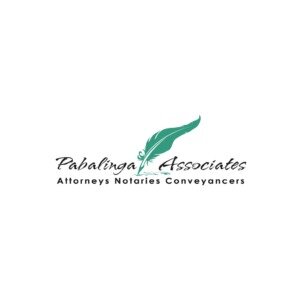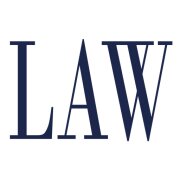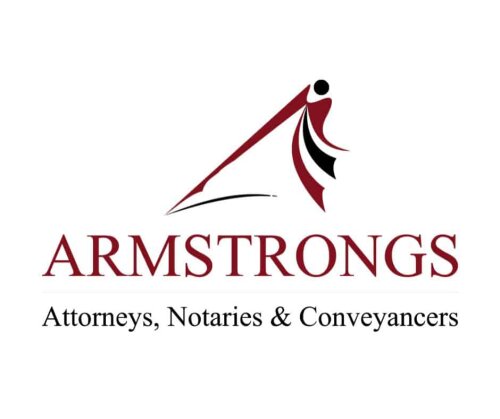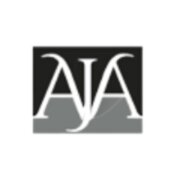Best Water Law Lawyers in Botswana
Share your needs with us, get contacted by law firms.
Free. Takes 2 min.
Or refine your search by selecting a city:
List of the best lawyers in Botswana
About Water Law in Botswana
Water Law in Botswana governs the use, management, and protection of water resources throughout the country. Given Botswana’s status as a semi-arid country, water is recognized as a crucial and sometimes scarce resource. The legislative framework aims to ensure equitable use, efficient management, environmental protection, and conflict resolution related to water resources. Water Law in Botswana is primarily established under the Water Act and complemented by policies and regulations that address water supply, sanitation, conservation, and allocation.
Why You May Need a Lawyer
There are various situations where individuals, businesses, or communities might require legal guidance concerning Water Law in Botswana. Such situations may include disputes over water access and usage rights, applications for water permits, issues with land development affecting water resources, conflicts between agricultural users, enforcement of environmental regulations, compliance with government water policies, and negotiations involving transboundary water sources. Qualified legal assistance helps ensure that your activities comply with applicable laws, and can also be invaluable in dispute resolution or navigating complex regulatory requirements.
Local Laws Overview
Several key aspects of Botswana’s Water Law framework are particularly relevant:
- The Water Act (Cap. 34:01): The principal statute, the Water Act governs the control, conservation, use, and supply of water resources. It establishes the Water Apportionment Board, which oversees applications and allocation of water rights and licenses.
- Water Utilities Corporation Act: This Act establishes the Water Utilities Corporation, responsible for providing potable water and sanitation services across the country.
- Water Rights and Permits: Individuals and organizations must obtain permits to extract or divert water, especially for commercial or agricultural purposes. The regulations specify application procedures, compliance requirements, and the consequences of non-compliance.
- Environmental Impact Assessments (EIAs): Projects that may impact water resources are typically subject to EIA regulations to assess and mitigate environmental risks.
- Transboundary Water Management: Botswana is a member of several international arrangements for managing shared watercourses, such as the Okavango and Limpopo agreements, which impose their own regulatory and procedural requirements.
Frequently Asked Questions
What is the Water Act and what does it regulate?
The Water Act is Botswana’s principal water legislation, regulating the conservation, use, supply, and protection of water. It outlines procedures for obtaining water permits, the roles of regulatory bodies, and the protection of public water sources.
Who needs a water permit in Botswana?
Any individual, community, or business seeking to extract, divert, store, or use significant amounts of water, especially from public sources or for commercial and agricultural purposes, requires a water permit issued by the Water Apportionment Board.
How do I apply for a water right or permit?
Applications are submitted to the Water Apportionment Board. The process involves completing relevant forms, providing details of intended water use, and sometimes conducting an environmental impact assessment. The Board will review each application and issue permits based on availability and compliance.
What happens if I use water without the proper permit?
Unauthorized use of water or violation of permit conditions can lead to penalties, including fines, cessation orders, or legal action. Repeat or serious violations may result in criminal charges.
Can water rights be transferred or inherited?
Water rights are generally not automatically transferable but may be reassigned by the Water Apportionment Board under certain circumstances, such as property sales or inheritance. Approval from the regulatory authority is required.
What should I do if my water source is being contaminated by another party?
If your water source is affected by pollution or contamination, you should report the matter to the Department of Water Affairs or the Environmental Protection Agency. Legal action or enforcement may be necessary, so consulting a lawyer is advisable.
How are water disputes resolved in Botswana?
Water disputes are typically handled by the Water Apportionment Board, but unresolved cases can be escalated to the courts. Alternative dispute resolution processes, such as mediation, may also be utilized.
Are there restrictions on groundwater extraction?
Yes, significant extraction of groundwater requires permits, and there are regulations limiting excessive abstraction to prevent resource depletion. Compliance with both technical and environmental standards is necessary.
What is the role of the Water Utilities Corporation?
The Water Utilities Corporation manages the supply and distribution of potable water and sanitation services in designated urban and peri-urban areas. It is responsible for ensuring reliable service delivery, infrastructure maintenance, and compliance with safety standards.
Can communities or individuals oppose water-related projects?
Yes, affected communities or individuals can raise objections to water use applications or projects, especially if there are concerns about negative impacts. Formal objections are addressed during the permitting process or through public participation mechanisms.
Additional Resources
There are several resources and entities available for those seeking guidance or assistance with Water Law issues in Botswana:
- Department of Water Affairs: Responsible for administering water policy, permits, and regulation. They manage surface and groundwater resources and enforce compliance.
- Water Apportionment Board: Handles water rights applications, conflict resolution, and ensures fair distribution of water resources.
- Water Utilities Corporation (WUC): Oversees water and sanitation service provision, including infrastructure development.
- Ministry of Land Management, Water and Sanitation Services: Provides policy oversight and integration of water and land management issues.
- Botswana Environmental Protection Agency: Addresses environmental compliance in projects affecting water resources.
- Legal Aid Botswana: Offers free or affordable legal advice for those unable to afford private lawyers.
- Local law firms and attorneys: For personalized advice, representation, and dispute resolution related to Water Law cases.
Next Steps
If you believe you require legal assistance regarding Water Law in Botswana, consider the following steps:
- Identify the specific issue or dispute related to water access, usage, permits, or rights.
- Gather all relevant documentation, including permits, communications, reports, and any formal notices received.
- Contact the appropriate government department, such as the Department of Water Affairs or the Water Apportionment Board, for guidance on your situation.
- Seek legal advice from a qualified lawyer familiar with Water Law in Botswana to assess your options, ensure compliance, or prepare your application or defense.
- In cases of disputes, be prepared for mediation or legal proceedings and take action within statutory timeframes to protect your interests.
- For broader implications or complex matters, consider consulting experts in both legal and environmental fields to ensure a holistic approach.
Lawzana helps you find the best lawyers and law firms in Botswana through a curated and pre-screened list of qualified legal professionals. Our platform offers rankings and detailed profiles of attorneys and law firms, allowing you to compare based on practice areas, including Water Law, experience, and client feedback.
Each profile includes a description of the firm's areas of practice, client reviews, team members and partners, year of establishment, spoken languages, office locations, contact information, social media presence, and any published articles or resources. Most firms on our platform speak English and are experienced in both local and international legal matters.
Get a quote from top-rated law firms in Botswana — quickly, securely, and without unnecessary hassle.
Disclaimer:
The information provided on this page is for general informational purposes only and does not constitute legal advice. While we strive to ensure the accuracy and relevance of the content, legal information may change over time, and interpretations of the law can vary. You should always consult with a qualified legal professional for advice specific to your situation.
We disclaim all liability for actions taken or not taken based on the content of this page. If you believe any information is incorrect or outdated, please contact us, and we will review and update it where appropriate.
Browse water law law firms by city in Botswana
Refine your search by selecting a city.














